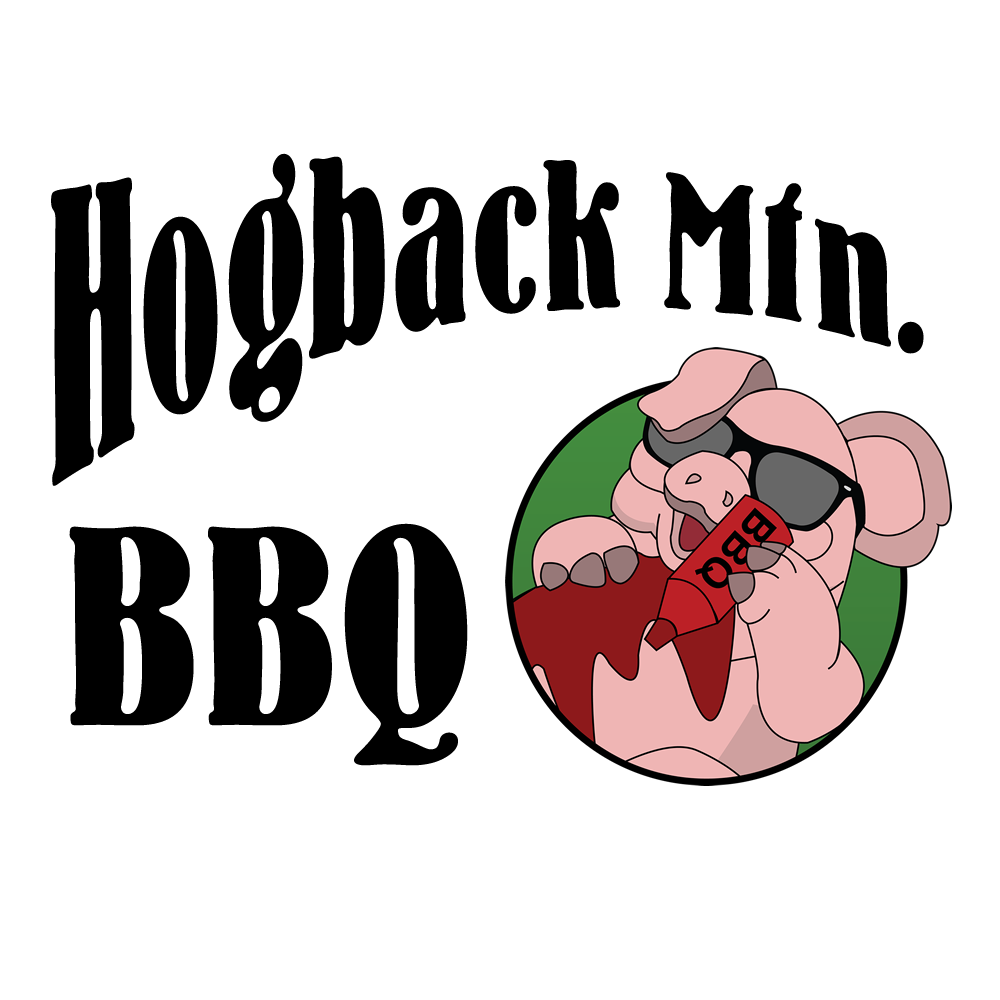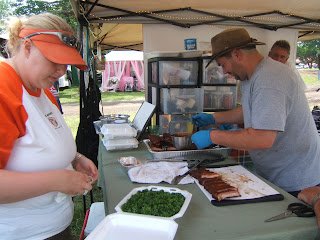Blog 1 - What is barbecue?
I've decided to start this blog to get back to what I love about barbecue. While I do plan to write posts about the business of barbecue many of my posts will not be related to the business aspects and focus on the roots and fun. I make no claims of being a professional writer and hopefully, my posts will improve over time, so here goes. When thinking about what to write for my first blog post I wanted to provide a spark that would perk the interest of those who have little to no knowledge of barbecue. Perhaps reading this post will start you on a barbecue journey as a connoisseur, pitmaster or student of all things barbecue. I hope you enjoy and follow our posts in the future.
What is barbecue? When someone thinks of barbecue they generally have a specific thing in mind and compare all creations of the smoky goodness we call barbecue to their standards. If you happen to be in Virginia or North Carolina and you were to poll people on the street about what barbecue is the answer would be pork cooked and chopped, hand pulled, minced or shredded to one degree or another. The sauce would be some type of tangy vinegar-based concoction of greatness. Though you'll find plenty of sweet sauces in Virginia there is a revolution coming in Virginia to reclaim our roots as the forefather of southern barbecue due largely in part to a man who is a combination of a barbecue archaeologist and a historian named Joe Haynes and his now famous book Virginia Barbecue: A History. Look for Virginia Barbecue to be on the rise in the near future. Now if you happen to be in Texas and you were to order a barbecue sandwich you're going to get beef just by uttering the word barbecue brisket is their first go-to meat. Barbecue sauce in South Carolina is primarily a mustard vinegar-based tangy sometimes spicy style sauce. Kansas City sauce will be a thicker tomato-based sauce that may be sweet and maybe even spicy. The common thread is it will be a thicker tomato-based sauce. Drop down to Memphis and the sauce may be thinner with a little tangy taste, I feel that Memphis BBQ Sauce is a blend of Virginia and Kansas City barbecue sauces. In Memphis, they may even argue dry rub is best with no sauce. Let's not leave out North Carolina a state that cannot even decide whether the sauce should be red (with tomato product) or clear (no tomato product). Either way, it will be vinegar based but in the western regions, it will have tomato products in it. This is called Piedmont or a Lexington Dip Western Carolina sauce among other names too I'm sure. In the east, it will be a clear vinegar sauce with or without a sweetener and many different spices used to give pork the unique flavor that so many people love. Move down to Alabama and their barbecue sauce is white and is made from a mayonnaise-based recipe. Let's not leave out the west coast where they barbecue tri-tip beef over open coals on a Santa Maria Style pit to a medium rare/medium doneness sliced thin
Cooking on our custom offset smoker 2008
Sauce it spicy, sweet, tangy, or with no sauce at all. As you can see we have just touched on a few regions of the United States and the aspects of barbecue change greatly depending on your location. Imagine the various barbecue you would eat on a journey around the world.
So, what is barbecue? To some, it's simply a hamburger cooked on a gas grill but that's not really barbecue. Barbecue is not smoking or grilling. If you take raw meat and you would like to preserve or simply add flavor to it you place raw meat in a smoker curing salts and seasoning cooking at temperatures from roughly 60-175 degrees for a given amount of time. Bacon is smoked yet still raw and must be cooked. This is because it was cold smoked simply to add flavor and in the old days preserve the meat. If you are cooking a hamburger over direct heat at 400 plus degrees then you are grilling. This method works best for many lean cuts of meat and fish or a nice steak.
Pigs in The Park - Danville, VA 2008
This leaves us with the zone in between the other two from roughly 200-350 degrees that we call barbecue. While we are at it barbecue MUST be cooked with charcoal, wood, or coals to be real barbecue with wood or wood coals being preferred. If it is cooked by other methods it might be good eating but it isn't barbecue. There are exceptions to this rule with barbecue cookers that generate heat from propane and provide smoke from smoldering wood and they will produce excellent barbecue. There are however those who will not deem this a true barbecue. I personally have eaten great barbecue from this style cooker and I'm fine with it. These cookers will produce very comparable barbecue to any pure wood cooker. I do however believe it is important to be able to produce a great product on a wood, charcoal, or coal cooker in order to call yourself a pitmaster. The next time you are traveling, stop for barbecue and see what the region has to offer. There are many types for you to experience around the world!


